Production dating back to the latter half of the Edo Period
The Takanoi Sake Brewery was previously known as the Yamazaki Sake Brewery. Located in Ojiya-shi’s Takanashicho district, it began making sake in the latter half of the Edo Period. The current brewery would stand on its ancestral site had it not been swept up in a fire that destroyed the district in 1937. The brewery was rebuilt on its current site, and three years after reconstruction the business was expanded as soy sauce and miso production facilities were built alongside it.
The brewery’s main brands are Denyu, Hatsuume and Takanoi. The company name Takanoi is composed of the district where the old brewery was located (Takanashi) and the Japanese word for well (Ido), an essential source of water for sake production.
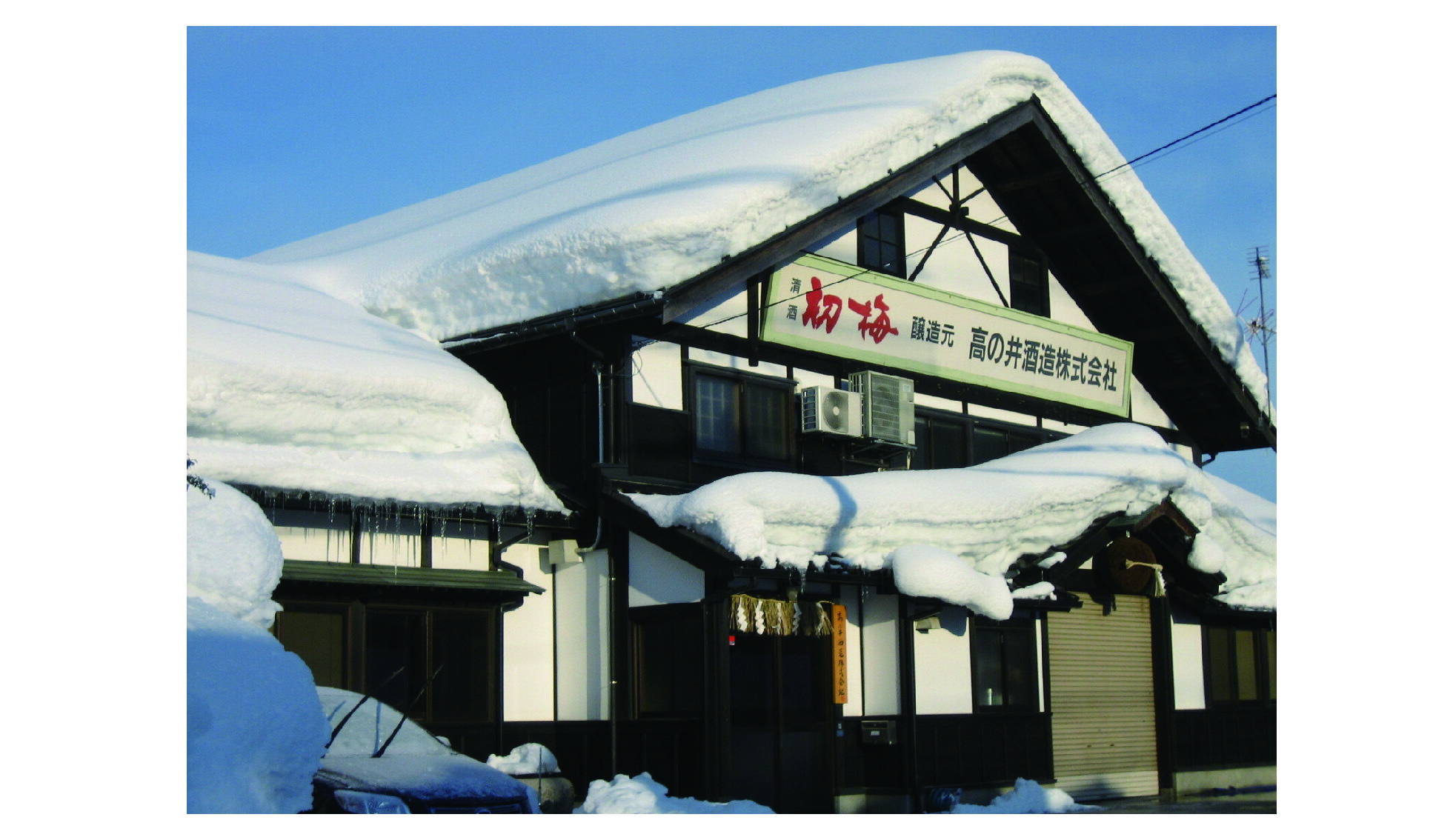
Chief Brewer Akihiro Kimura’s vision
Akihiro Kimura Toji’s vision
Akihiro Kimura graduated from the Niigata School of Sake in 1998 and was appointed as head brewer (Toji) in 2013. In 2017 his Daiginjo was awarded a gold medal by the influential and historic National Institute of Brewing’s New Sake Appraisal.
Incorporating both mechanisation and handcrafting in the production process, the brewing process at Takanoi is a combination of data, experience and brewer’s intuition.
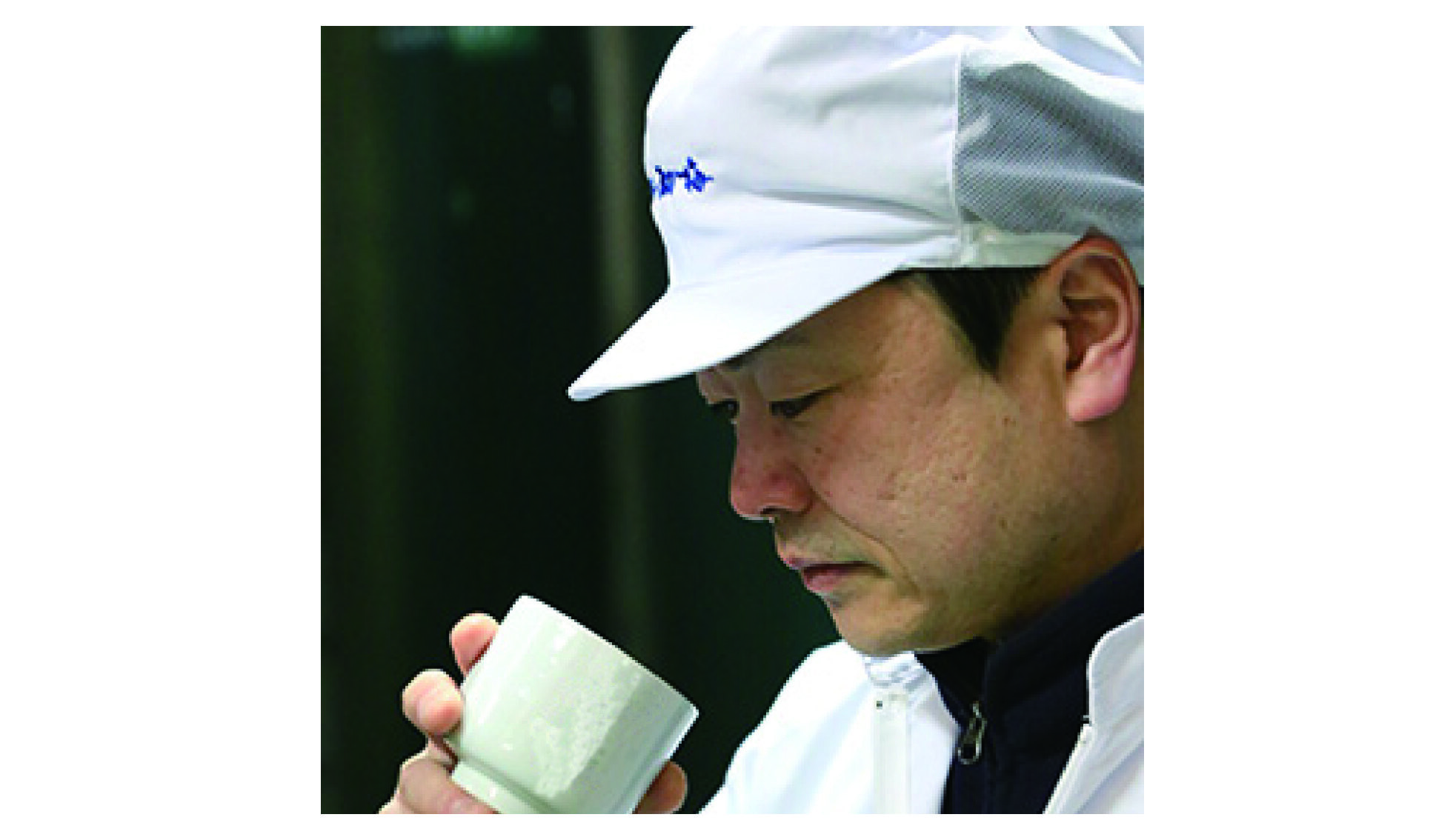
木村明裕杜氏
Brewing using sake rice from one of Japan’s prominent rice-producing region, Uonuma
It goes without saying that one of the most important ingredients in making sake is rice – the Takanoi Sake Brewery only uses rice from the region of Uonuma as a means of expressing the region’s terroir.
The lineup is made either from Koshi Tanrei, one of Niigata Prefecture’s foremost sake rices, or Gohyaku Mangoku, one of the predominant sake rice varieties found in JApan.
The brewery has a contract with the agricultural body Uchigamaki Kizuna for the production of Gohyaku Mangoku rice, for which JGAP certification has been obtained.
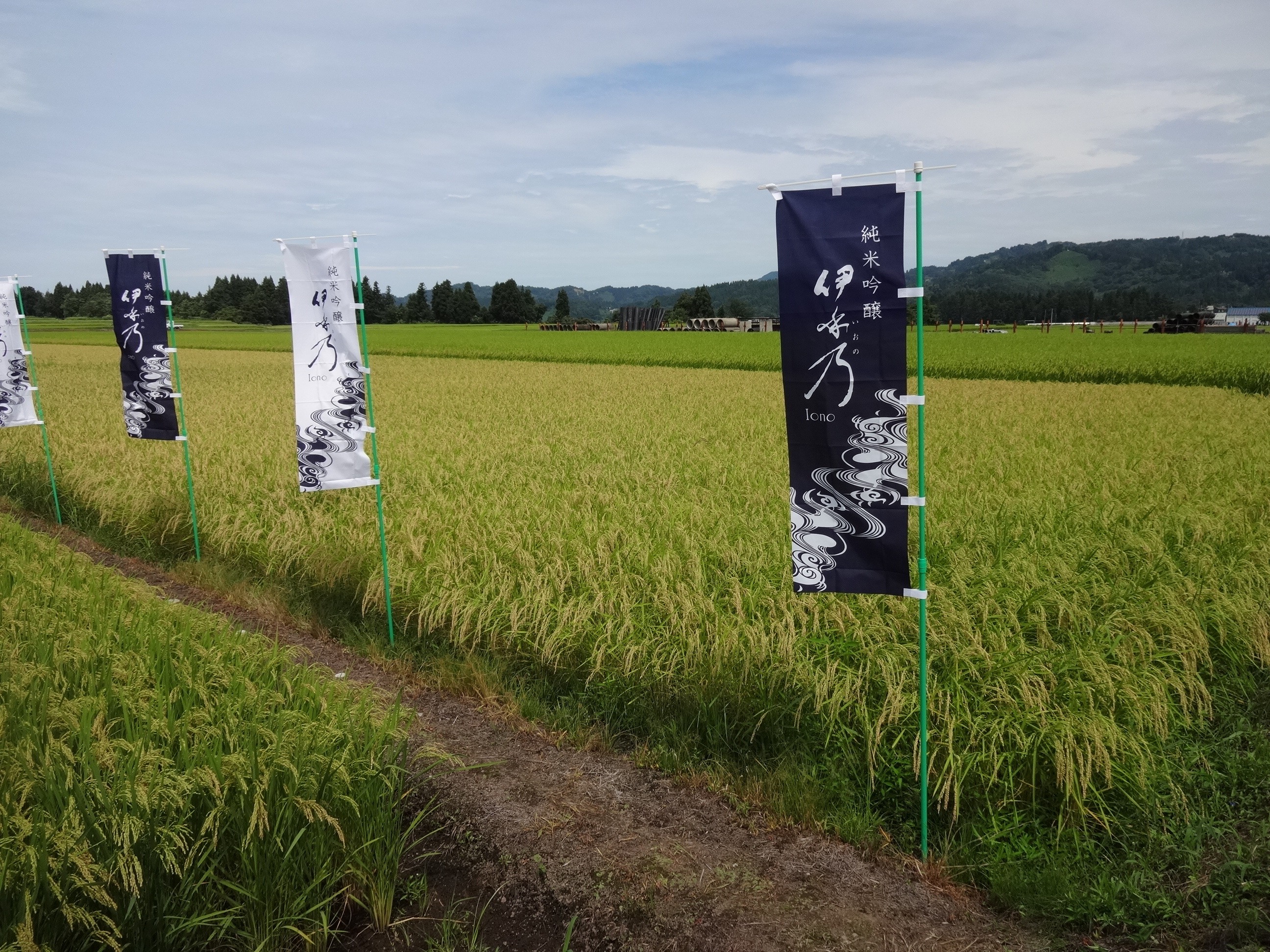
Uonuma’s natural water sources
The spring water used by the brewery starts as meltwater from the Uonuma mountain range, which gradually seeps underground.
With a hardness of 35.6mg/L, this soft water helps soothe the action of the yeast, yielding sake that is intricate and soft.
The snowy Uonuma region is blessed with plentiful reserves of meltwater and beautifully clear air; it is a perfect match for low temperature fermentations that give a sake that is fresh and free from off-flavours.
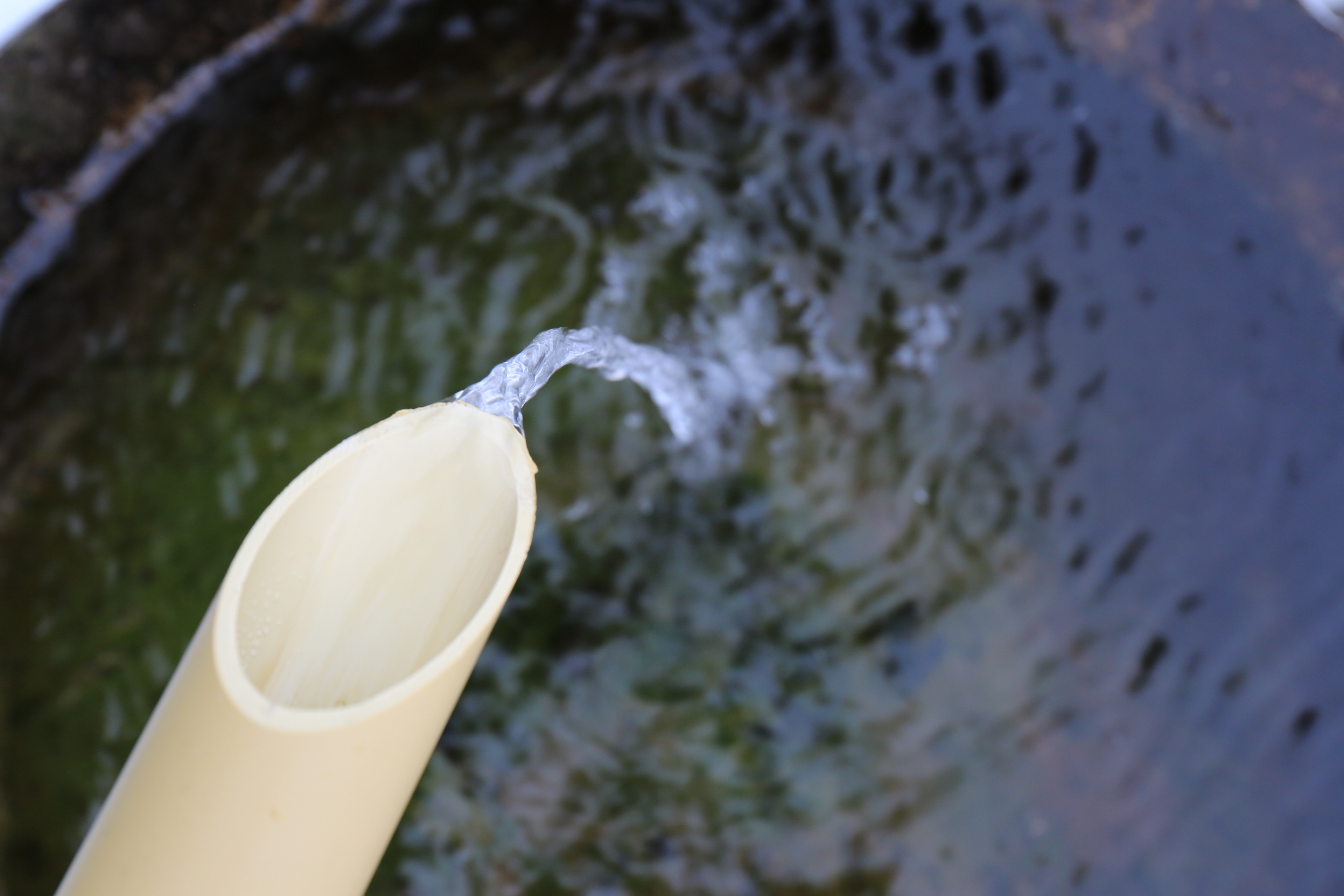
Introducing “Uchigamaki Kizuna”
“Uchigamaki Kizuna” was established in 2010 by a collective of 19 farmers from Niigata Prefectures’s Ojiya-shi, with the founding principle of “protecting the region by protecting agriculture”.
The area of cultivation covers approximately 28ha, with a focus on wetland rice. The group has contracts to farm sake rice, carrots, tomatoes and more.
The rice used in both the Iono Junmai Ginjo and Tokubetsu Junmai is produced entirely by Uchigamaki Kizuna.
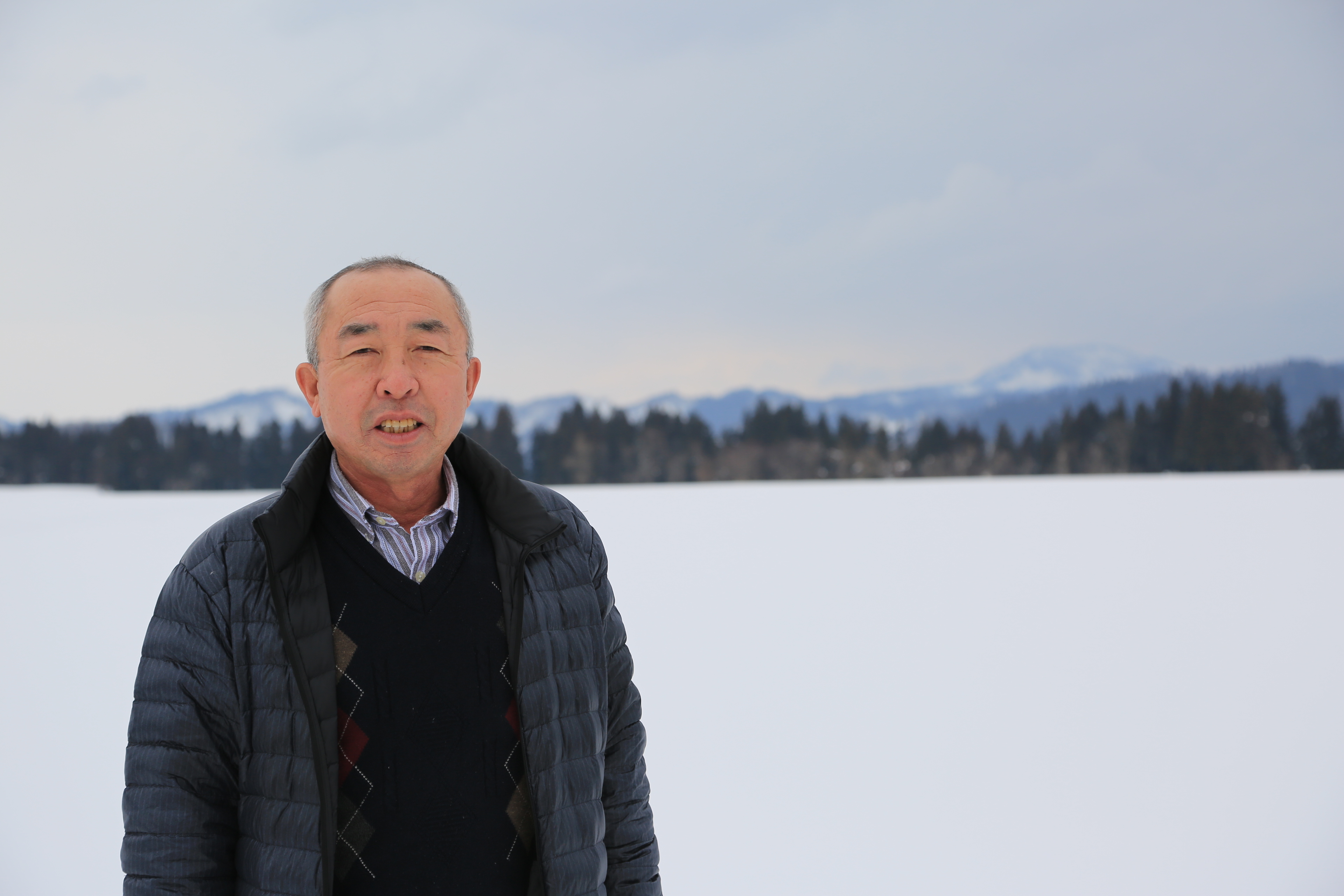
Introducing “JGAP”
JGAP is a certification that sets management standards for farms and agricultural co-ops and guarantees food safety and environmental conservation practices.
It is one of the certifications recommended by the Ministry of Agriculture, Forestry and Fisheries for the regulation of agricultural practices.
Over 120 different clauses are included, from the management of fertilisers to the management of manure, with specific standards set to guarantee food safety and ensure that sustainable practices that will conserve the environment are implemented.
The Iono Junmai Ginjo and Tokubetsu Junmai are both made from rice that has been produced in line with these high standards.
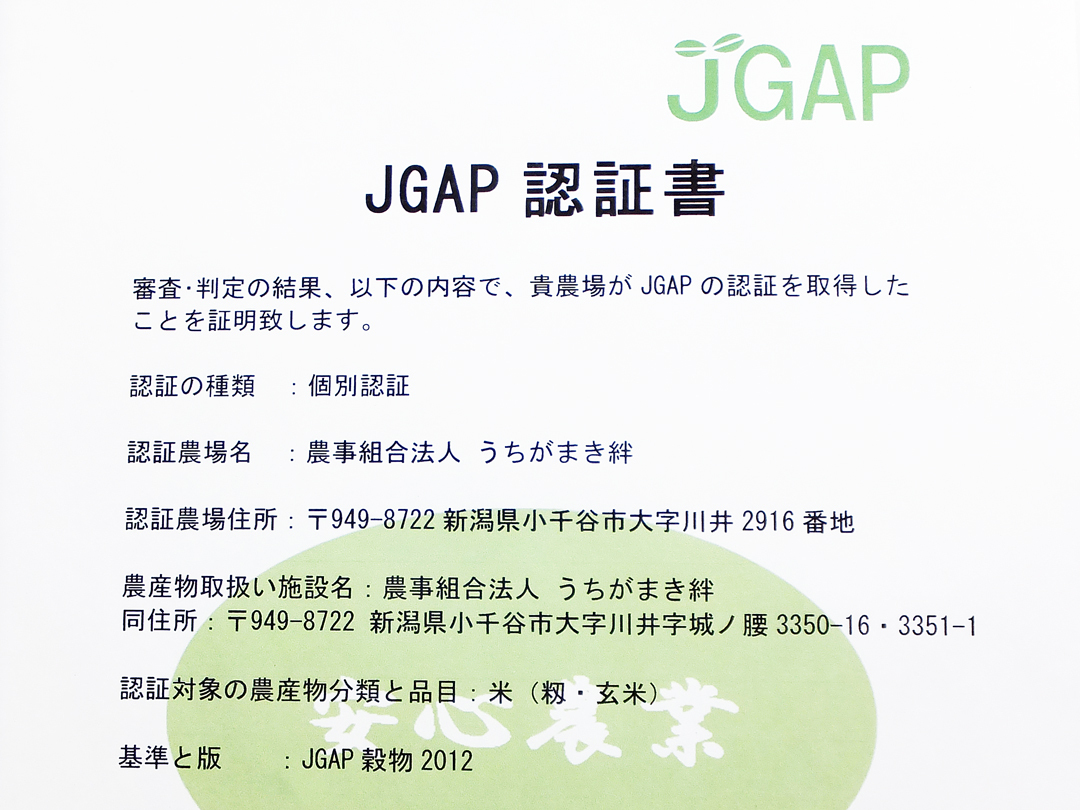
The home of snow ageing
In 1987, the Takanoi Sake Brewery carried out experiments with snow ageing, the first brewery to do so in Japan.
A tank containing the sake is completely buried in the snow. The ageing process at cold temperatures produces a more rounded, complete sake.
Before bottling, the Iono Junmai Daiginjo undergoes a period of ageing in this way, imbuing it with its gentle, rounded profile.
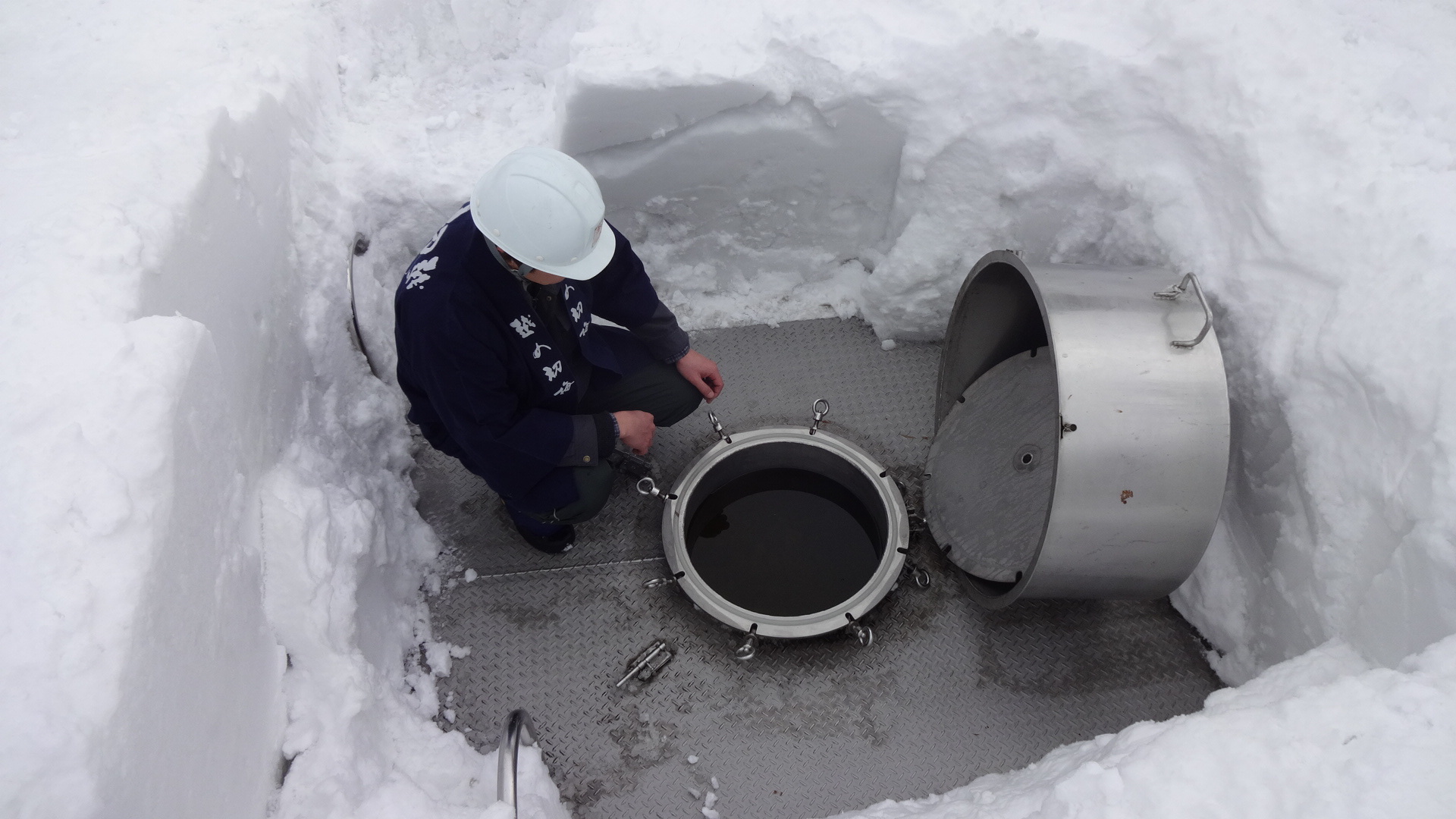
Introducing “Iono”
A collaboration between the Takanoi Sake Brewery and wine importer Mottox, Iono was first released in 2014.
An important aspect in its development was the goal of making a sake to be paired with food – a sake outstanding in its supporting role, but that shouldn’t insist upon itself.
The name “Iono” itself is an old name for Ojiya-shi and the wider Uonuma region. The choice is a tribute to Ojiya’s abundant terroir, its rice, and its long tradition of sake making.








